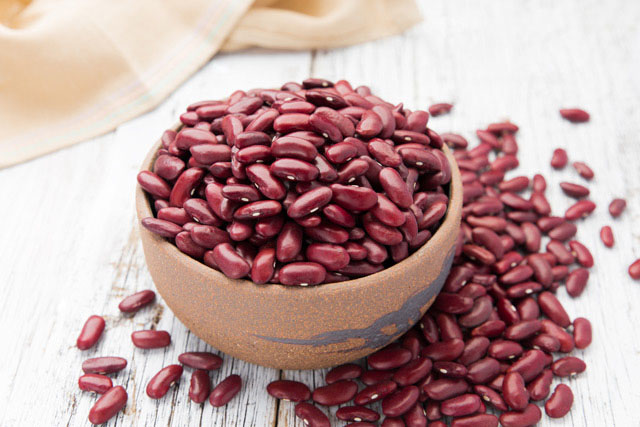11/24/2021 – Beans may be infamous for causing (intestinal) gas, but they offer many benefits that make them worth incorporating into your diet. If you’re looking to pack in more nutrients or considering following a plant-based diet, eating different types of beans may be all that you need. Here’s everything you need to know about them:
- Beans are a great source of protein
Beans are some of the best plant-based sources of protein, providing about 15 grams per cup. Some great beans to eat for protein include lima beans, kidney beans and black beans.
It’s important that you consume protein every day because it’s what gives structure to your hair, nails, skin, muscles, tendons, ligaments and organs. And at times when your body doesn’t get enough energy from carbohydrates or fats, protein can serve as fuel for your cells.
Beans also make a great substitute for meat if you’re trying to eat more plant-based foods and less animal products.
- Beans are high in folate
Beans are also rich in folate (vitamin B9). Folate helps your body make healthy red blood cells, which transport oxygen from your lungs to other tissues. Folate is also crucial during early pregnancy, as it helps lower the risk of birth defects. Folate helps your body convert carbohydrates into glucose, which cells use for energy.
Black-eyed peas contain the most folate of any bean, with a half-cup serving providing around 100 micrograms of the nutrient.
- Beans fill you up
Beans are some of the most weight-loss-friendly foods you can eat. They are low in fat and calories but high in protein and fiber. Protein and fiber are two of the most significant nutrients for weight loss because they promote feelings of fullness for long periods. You’re less likely to snack between meals if you feel full.
- Beans are good for your heart
Beans contain many nutrients that help keep your heart healthy, such as folate, magnesium and fiber. Aside from helping your body make healthy red blood cells, folate also helps lower levels of an amino acid in the blood called homocysteine. At very high levels, homocysteine can increase your risk of heart disease and stroke.
Magnesium, on the other hand, is important for maintaining a healthy heart rhythm. It is involved in transporting potassium, calcium and other electrolytes into cells. Electrolytes are electrically charged minerals that help regulate heartbeat.
Lastly, the fiber in beans, particularly soluble fiber, can reduce the absorption of low-density lipoprotein (LDL) into your bloodstream. LDL is also known as “bad” cholesterol because it can accumulate along the walls of your arteries. If left unchecked, bad cholesterol can cause your arteries to harden and narrow, raising your blood pressure.
- Beans regulate blood sugar
Beans can help keep your blood sugar under control thanks to soluble fiber. This type of fiber can help slow the absorption of sugar into your bloodstream.
Beans also have a low glycemic index (GI), meaning they won’t cause a spike in your blood sugar after eating. As such, beans make a great addition to the diets of people with high blood sugar.
- Beans are packed with antioxidants
When you think of foods with antioxidants, you probably think of green leafy vegetables or colorful berries. But one of the best things about pinto beans, kidney beans and other legumes is the large amount of vitamins they contain, such as vitamins C, B1, E and K. These vitamins work as antioxidants, protecting healthy cells from inflammation and damage.
Inflammation and cellular damage are at the root of chronic diseases, including cancer. As such, eating antioxidant-rich foods like beans as part of a balanced diet may help keep chronic diseases at bay.



